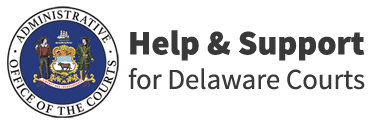Court Proceedings in the Court of Common Pleas
Civil |
|
|---|---|
Trials: |
Civil Trials are cases in which a corporation or individual files a lawsuit against another corporation or individual requesting the court award monetary damages. |
Arbitration: |
Arbitration is a method to resolve disputes between parties using a neutral third-party to decide the matter. If your matter is arbitrated, the decision of the arbitrator is non-binding. |
Pre-Trial Conference: |
If the Defendant(s) answers the Complaint, the case will be scheduled for a pre-trial conference. At the conference, the parties will meet with a to narrow the issues, determine the number of witnesses to be called, the length of the trial, and to discuss the possibility of settlement. |
Filing a Civil Motion: |
A motion is a petition for some type of relief, or some action, you ask the Court to grant you; it also may be a request for the Court to take notice of certain facts. |
Your Court Hearing: |
Learn what a court hearing is, tips on how to prepare for a court hearing and how to present your case at the court hearing. |
Appeals: |
An appeal is a review by a higher court of what happened in the court below to determine whether any mistakes occurred and, if so, whether the party who filed the appeal is entitled to have the decision of the court below reversed. Justice of the Peace Court Appeals of Civil Cases to the Court of Common PleasAdministrative Appeals from the Department of Transportation, Division of Motor Vehicles to the Court of Common Pleas. |
References: |
|
Criminal |
|
|---|---|
Arraignment: |
An arraignment is the defendant's initial appearance before the Court. At the arraignment, the defendant will be informed of the charges against him/her. The defendant or his/her attorney will be given a copy of the Information with the charges set forth on it as filed by the Attorney General of the State, and will be advised of the right to a trial by a judge or by jury. |
Misdemeanor Trial: |
The Court of Common Pleas has jurisdiction over misdemeanor offenses generally punishable by a fine and/or a jail term. At trial, the prosecution, or Deputy Attorney General on behalf of the State, will call witnesses and introduce evidence to try to prove that the defendant is guilty of the crime with which he/she is charged. |
Non-Jury Trial: |
At a non-jury trial, the Judge decides questions of fact and questions of law. |
Jury Trial: |
In a jury trial, the Judge decides questions of law, and the jury decides questions of fact (whether the defendant is guilty or not guilty on each of the offenses charged.) The trial begins with jury selection. A potential pool of jurors is summoned to court on the morning of trial. The Court of Common Pleas selects jurors from a pool of jurors summoned by the Superior Court. |
Preliminary Hearing: |
The Court of Common Pleas has jurisdiction to hear preliminary hearings in felony matters to determine whether a defendant should be "bound over" for trial. This means that the judicial officer must believe there is sufficient evidence. A defendant may choose to have a preliminary hearing or to waive it (give up the right to have the hearing.) If the defendant wants a hearing, the State must present evidence to the Court to establish that sufficient "probable cause" exists to hold the defendant for trial. To establish probable cause, the Court must have a reasonable belief that a crime has been committed and that the defendant committed the offense. |
Grand Jury: |
If the defendant is "bound over" for trial, it is sent to the Grand Jury to decide whether to issue an indictment (written accusations of a crime(s) against the defendant). If the Grand Jury indicts the defendant, the case is then sent to Superior Court for an arraignment and trial. |
Sentencing: |
If the defendant enters a plea of guilty or is found guilty, the judicial officer determines the penalty or sentence to be imposed. The judicial officer may decide to immediately sentence the defendant, or may schedule the sentencing for another day after ordering a Presentence Report. |
References: |
|

